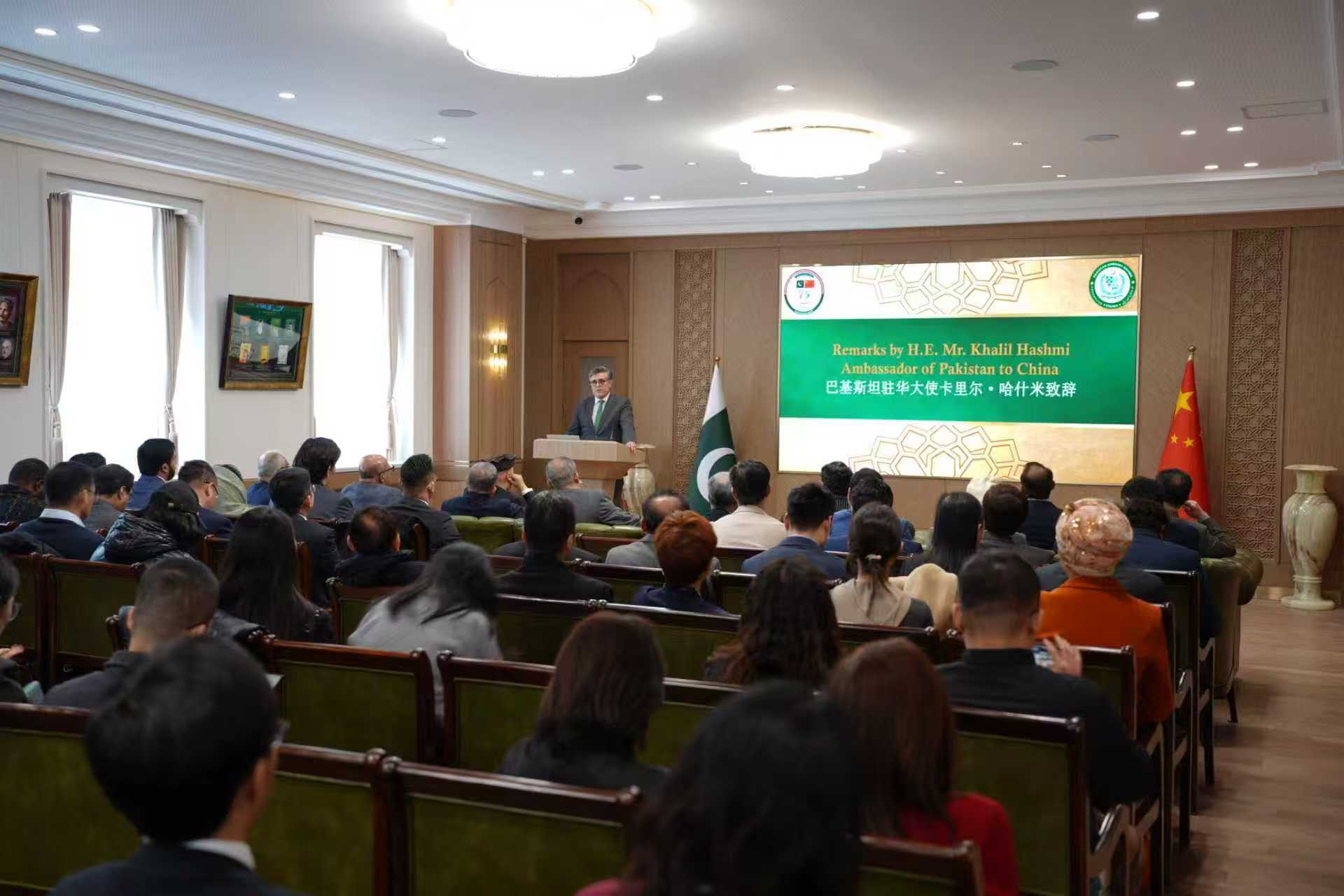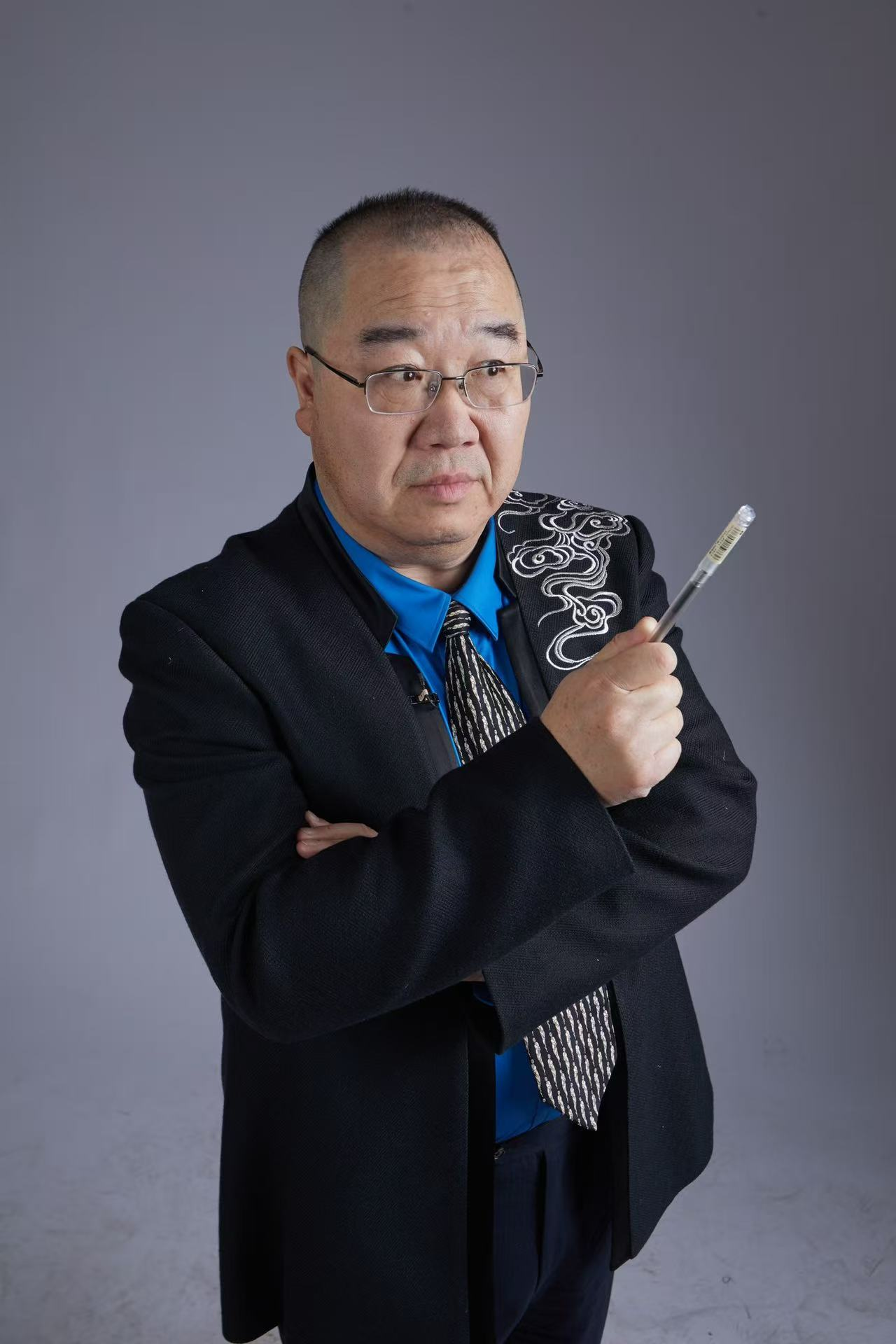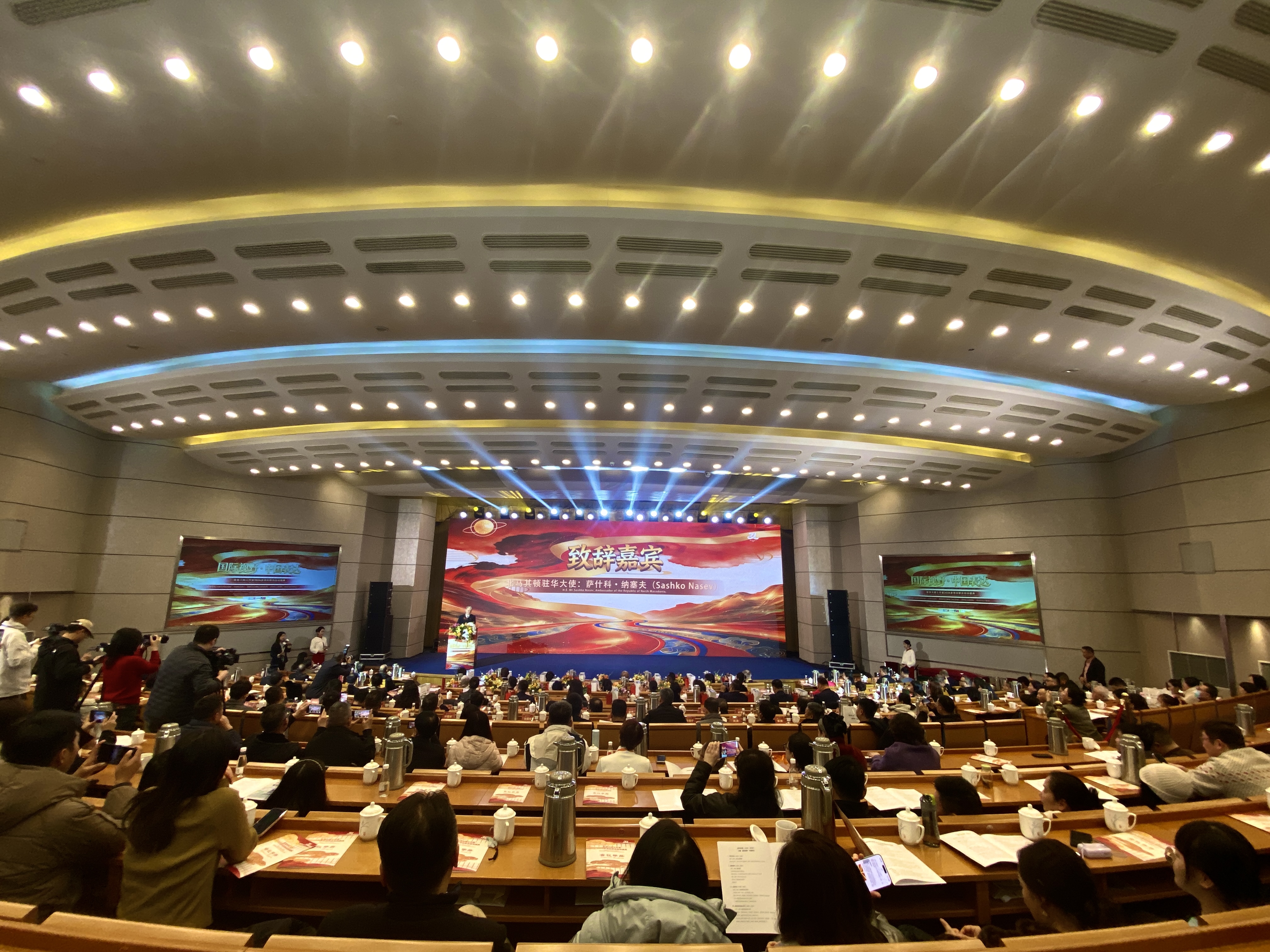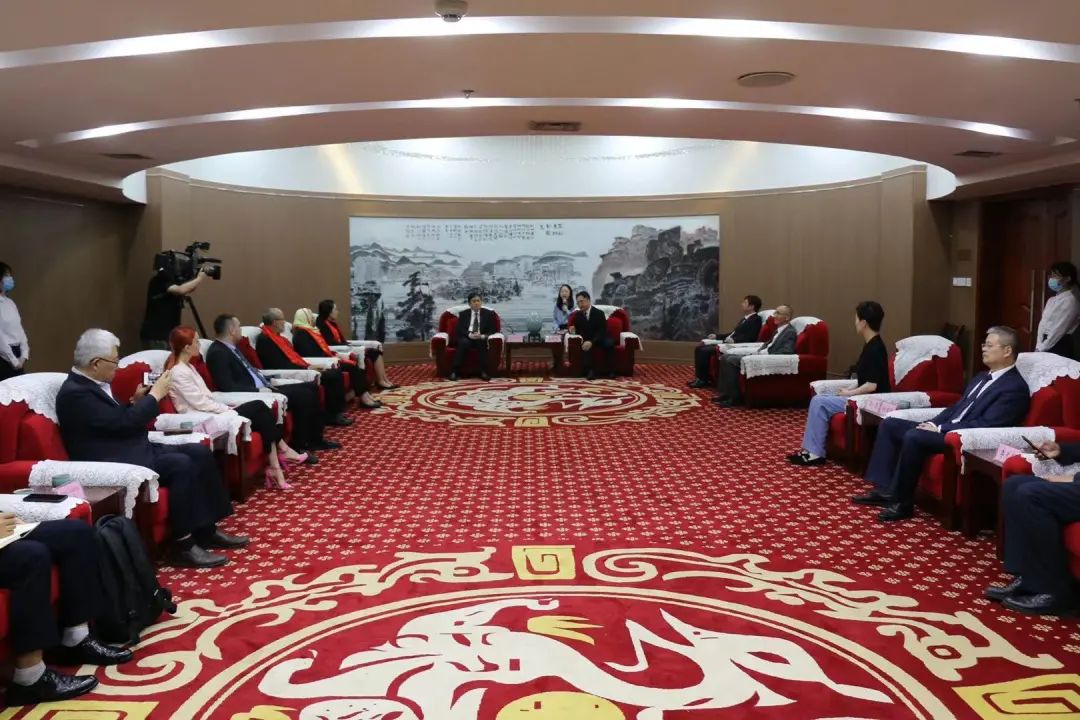An Independent Foreign Policy for Australia?
来源:
作者: James O’Neill* 点击:
发布时间:2020-09-02 15:07:40
Australian Foreign Minister Marise Payne and Defence Minister Linda Reynolds recently made an unexpected trip to Washington DC to confer with their US counterparts, Mike Pompeo and Mark Esper respectively. Why the two of them felt it necessary to make such a trip has never been exactly clear. One relatively minor inconvenience of the trip was the necessity for the two Australian Ministers to spend 14 days in quarantine upon their return. Such an inconvenience does not appear to be inflicted upon their American counterparts who travel abroad frequently and appear to suffer no restrictions upon their return before setting off again.
Pompeo recently paid a surprise visit to Denmark, a destination generally ignored by the United States’ globetrotting diplomatic elite. The only plausible explanation for Pompeo’s visit was the Danish government’s decision to allow part of their territorial waters to be used for the transit pipeline destined to carry vast quantities of Russian oil and gas to the German market and points beyond. This is a project bitterly opposed by the United States government for multiple self-interested economic and geopolitical reasons. The European countries should be free to make decisions as to what is in the best economic and political interests of their citizens appears not to be a consideration that troubles the Americans.
The media reporting on the Payne/Reynolds trip was illustrative of the role the mainstream media play in coverage of the Australia – United States relationship. All of the media went to some links to highlight Payne’s carefully worded public comments. Those reports suggested that Australia was not completely on board with the United States policy of demonising all things Chinese.
There are of course several very good economic reasons for Australia not to join in the United States demonisation of all things Chinese. China is Australia’s largest foreign market by a very large margin, largest source of both foreign students and foreign tourists, and the third largest source of foreign investment. Economic self-interest should be a paramount interest of any government purporting to act in the best interests of its people.
Unfortunately, the nominal gestures of separation by Australia from United States foreign policy obsessions is more apparent than real. The political calculation in Canberra is most probably that the Trump administration has only a few months of shelf life left. The public opinion polls, for what they are worth, generally supports the view that the next United States president, come January 2021, will be the ageing and manifestly mentally declining (through dementia) Joe Biden.
That Biden will be a faithful mouthpiece for the elites who actually run the United States is not in doubt, and the probable reason he got the nomination in the first place. Biden can also point to a proven track record of carrying out the wishes of the military-industrial – intelligence complex during his eight years as vice president under Obama.
Anyone expecting any shift in United States policy obsessions with Russia and China under a Biden presidency is sadly delusional. United States foreign policy has been fundamentally unchanged in the post- World War II era, regardless of the nominal occupier of the White House. John Kennedy displayed some signs of making significant shift in US foreign policy that he intended to implement after re-election in 1964. That was clearly unacceptable to the people who really run the US, so Kennedy was killed. It is one measure of the power of those forces, and their control of the mainstream media, that 57 years after the event they are still promoting the fairy tale of Lee Harvey Oswald as the “lone nut” assassin.
A new President in the United States in January 2021 will therefore from Australia’s point of view merely be a return to “normalcy” in Australian foreign policy. The normality of and unquestioning Australian compliance with United States foreign policy wishes has been the outstanding characteristic of Australian policy since the 1975 coup that overthrew the government of Gough Whitlam.
Whitlam had shown alarming (from the United States point of view) gestures toward an independent foreign policy. The proposed closure of Pine Gap was the decisive basis for the coup, although there had been a series of other foreign policy initiatives preceding that event that had raised alarm bells in Washington.
One of the clearest indications of that alarm was the appointment of Marshall Green as United States ambassador to Canberra during the Whitlam government’s tenure. Green was known as the “coup master” as a result of earlier United States “successes” in South Korea, Indonesia and Chile in removing non-compliant governments. It is a revealing feature of Australian discussions about the work of Jenny Hocking in her tireless pursuit of the palace letters, i.e. the correspondence between Attorney General John Kerr and Buckingham Palace, that the United States role is downplayed or ignored.
The most obvious manifestation of the results of that coup is that successive Australian governments, regardless of nominal political differences, have faithfully followed the United States line ever since. This has included, most obviously, participation in illegal United States wars in Afghanistan, Iraq and Syria, the eldest of which is now rapidly approaching its 20th anniversary.
Australian compliance with these wars is manifest for example, in the almost complete absence of debate in the Federal parliament. It is frankly astonishing, and more than a little alarming, that a country’s participation in wars of choice should receive so little Parliamentary scrutiny. It reflects, more than almost any other factor, that Australia is compliant with United States wars of choice, and that compliance is a cross-party policy.
Which brings us back to the token gestures of Payne and Reynolds. They represent above all, a combination of the Australian desire to have its cake and eat it too. That is, they wish to retain its highly lucrative links to the Chinese market while at the same time remaining a loyal catspaw to United States foreign policy interventionism of which wars of choice are but one manifestation.
Because joining United States wars of choice is such a bipartisan event, it would be singularly unrealistic to anticipate any change of policy in the foreseeable future. There is one cautious caveat to throw over that assumption. The Chinese have already exhibited signs of a loss of patience with Australia’s two-faced approach in restricting the importing of several key Australian exports.
This may be taken as a warning shot across the bows of Australian stupidity. The question to be asked is this. Will Australia get the message and amend its foreign policy adherence to United States imperialism, thereby rescuing its relationship with its most important customer? To be brutally frank, the symptoms are not promising. Payne’s gesture at attempting to put some space between United States and Australian foreign policy imperatives was just that; a gesture.
Come January 2021 normal subservience will be resumed and Australia will face some brutal realities. They cannot say they were not warned, not least by the thus far limited actions of the Chinese government. 50 years of subservience to the United States however, carries a price tag. Australia is shortly to learn just how high that price will be.
澳大利亚外交部长玛丽斯·佩恩和国防部长琳达·雷诺兹最近出人意料地前往DC,分别与美国外长迈克·蓬佩奥和马克·埃斯珀进行磋商。他们两人为什么觉得有必要进行这样的旅行,这一点一直不太清楚。这次旅行中一个相对较小的不便是两位澳大利亚部长必须在回国后隔离14天。这种不便似乎并没有给他们再次启程受到任何限制。
庞贝最近突然造访了丹麦,这个目的地通常被美国周游世界的外交精英们所忽视。庞贝到访的唯一合理解释是,丹麦政府决定允许其部分领海用于将大量俄罗斯石油和天然气输送到德国市场和其他地方的输油管道。出于多种自利的经济和地缘政治原因,这是一个遭到美国政府强烈反对的项目。
欧洲国家应该自由地决定什么是他们公民的最佳经济和政治利益,这似乎不是困扰美国人的一个考虑因素。 关于佩恩/雷诺兹之行的媒体报道说明了主流媒体在报道澳大利亚和美国关系中发挥的作用。所有的媒体都去了一些链接,强调佩恩措辞谨慎的公开评论。这些报道表明,澳大利亚并不完全赞同美国妖魔化一切中国事物的政策。
澳大利亚当然有几个很好的经济理由不加入美国对所有中国事物的妖魔化。中国在很大程度上是澳大利亚最大的海外市场,是外国学生和外国游客的最大来源,也是第三大外国投资来源。经济上的自我利益应该是任何声称为人民的最佳利益行事的政府的最高利益。
不幸的是,澳大利亚脱离美国外交政策困扰的名义姿态是表面的,而不是真实的。堪培拉的政治考量很可能是特朗普政府只剩下几个月的保质期了。民意调查显示,总的来说,他们支持下一任美国总统将于2021年1月上任的观点,他将是一位上了年纪、明显精神衰退(由于痴呆症)的乔·拜登。 拜登将成为真正掌管美国精英们的忠实代言人,这是毫无疑问的,也是他获得提名的可能原因。拜登还可以指出,在他担任奥巴马政府副总统的八年时间里,在实现军事-工业-情报综合体的愿望方面,有着良好的记录。
可悲的是,任何期望在拜登担任总统期间美国对俄罗斯和中国的政策转变都是妄想。美国的外交政策在第二次世界大战后的时代从根本上没有改变,无论白宫的名义占领者是谁。约翰·肯尼迪显示出一些迹象,表明他打算在1964年连任后实施的美国外交政策发生了重大转变。这对真正掌管美国的人来说显然是不可接受的,所以肯尼迪被杀了。这是衡量这些力量的体现,以及他们对主流媒体控制的一个尺度,在事件发生57年后,他们仍在宣扬李·哈维·奥斯瓦尔德是“孤独的坚果”杀手的童话故事。
因此,从澳大利亚的角度来看,2021年1月美国的新总统仅仅是澳大利亚外交政策“正常化”的一种回归。自1975年推翻高夫·惠特拉姆政府以来,澳大利亚对美国外交政策愿望的正常和绝对遵从一直是澳大利亚政策的突出特点。 惠特拉姆对独立的外交政策表现出令人担忧的姿态(从美国的角度来看)。拟议中的关闭松峡是政变的决定性基础,尽管在那次事件之前还有一系列其他的外交政策举措在华盛顿敲响了警钟。 这种警觉的最明显迹象之一是在惠特拉姆政府任期内任命马歇尔·格林为美国驻堪培拉大使。
由于美国早先在韩国、印度尼西亚和智利“成功”推翻了不合规的政府,格林被称为“政变大师”。在澳大利亚关于珍妮·霍金孜孜不倦地追求王室信件(即司法部长约翰·克尔和白金汉宫之间的通信)的工作讨论中,美国的作用被淡化或被忽视,这是一个具有启发性的特点。
那次政变结果最明显的表现是,历届澳大利亚政府,不管名义上的政治分歧如何,自那以后都忠实地遵循美国的路线。最明显的是,这包括参与美国在阿富汗、伊拉克和叙利亚的非法战争,其中最长的一次战争现在正迅速接近20周年。
例如,澳大利亚对这些战争的服从是显而易见的,在联邦议会中几乎完全没有辩论。坦率地说,一个国家参与选择战争却很少受到议会的审查,这令人吃惊,甚至有点令人担忧。它比几乎任何其他因素都更能反映出澳大利亚遵从美国的选择战争,并且遵从是一项跨党派的政策。
这让我们回到佩恩和雷诺兹象征性的姿态。它们首先代表了澳大利亚人既想吃蛋糕又想分蛋糕的愿望。也就是说,他们希望保持其与中国市场的高度有利可图的联系,同时对美国的外交政策干涉主义保持忠诚,选择战争只是美国外交政策干涉主义的一种表现。
因为加入美国选择的战争是这样一个两党合作的事件,在可预见的未来预测任何政策的改变都是非常不现实的。有一个谨慎的警告要推翻这个假设。中国已经表现出限制几个澳大利亚主要出口、进口产品的两面派做法失去耐心的迹象。 这可能被视为对澳大利亚愚蠢行为的警告。要问的问题是这样的。
澳大利亚会明白这一点,并改变其对美帝国主义的外交政策,从而挽救其与最重要的客户的关系吗?坦率地说,症状并不乐观。佩恩试图在美国和澳大利亚的外交政策之间留出一些空间的姿态正是如此;一个手势。 2021年1月,澳大利亚将恢复正常的屈从,并将面临一些残酷的现实。他们不能说没有受到警告,尤其是中国政府迄今为止有限的行动。然而,50年来对美国的屈从是有代价的。澳大利亚很快就会知道这个代价会有多高。
(作者是律师和政治分析师 James O’Neill)
(责任编辑: James O’Neill*)
Pompeo recently paid a surprise visit to Denmark, a destination generally ignored by the United States’ globetrotting diplomatic elite. The only plausible explanation for Pompeo’s visit was the Danish government’s decision to allow part of their territorial waters to be used for the transit pipeline destined to carry vast quantities of Russian oil and gas to the German market and points beyond. This is a project bitterly opposed by the United States government for multiple self-interested economic and geopolitical reasons. The European countries should be free to make decisions as to what is in the best economic and political interests of their citizens appears not to be a consideration that troubles the Americans.
The media reporting on the Payne/Reynolds trip was illustrative of the role the mainstream media play in coverage of the Australia – United States relationship. All of the media went to some links to highlight Payne’s carefully worded public comments. Those reports suggested that Australia was not completely on board with the United States policy of demonising all things Chinese.
There are of course several very good economic reasons for Australia not to join in the United States demonisation of all things Chinese. China is Australia’s largest foreign market by a very large margin, largest source of both foreign students and foreign tourists, and the third largest source of foreign investment. Economic self-interest should be a paramount interest of any government purporting to act in the best interests of its people.
Unfortunately, the nominal gestures of separation by Australia from United States foreign policy obsessions is more apparent than real. The political calculation in Canberra is most probably that the Trump administration has only a few months of shelf life left. The public opinion polls, for what they are worth, generally supports the view that the next United States president, come January 2021, will be the ageing and manifestly mentally declining (through dementia) Joe Biden.
That Biden will be a faithful mouthpiece for the elites who actually run the United States is not in doubt, and the probable reason he got the nomination in the first place. Biden can also point to a proven track record of carrying out the wishes of the military-industrial – intelligence complex during his eight years as vice president under Obama.
Anyone expecting any shift in United States policy obsessions with Russia and China under a Biden presidency is sadly delusional. United States foreign policy has been fundamentally unchanged in the post- World War II era, regardless of the nominal occupier of the White House. John Kennedy displayed some signs of making significant shift in US foreign policy that he intended to implement after re-election in 1964. That was clearly unacceptable to the people who really run the US, so Kennedy was killed. It is one measure of the power of those forces, and their control of the mainstream media, that 57 years after the event they are still promoting the fairy tale of Lee Harvey Oswald as the “lone nut” assassin.
A new President in the United States in January 2021 will therefore from Australia’s point of view merely be a return to “normalcy” in Australian foreign policy. The normality of and unquestioning Australian compliance with United States foreign policy wishes has been the outstanding characteristic of Australian policy since the 1975 coup that overthrew the government of Gough Whitlam.
Whitlam had shown alarming (from the United States point of view) gestures toward an independent foreign policy. The proposed closure of Pine Gap was the decisive basis for the coup, although there had been a series of other foreign policy initiatives preceding that event that had raised alarm bells in Washington.
One of the clearest indications of that alarm was the appointment of Marshall Green as United States ambassador to Canberra during the Whitlam government’s tenure. Green was known as the “coup master” as a result of earlier United States “successes” in South Korea, Indonesia and Chile in removing non-compliant governments. It is a revealing feature of Australian discussions about the work of Jenny Hocking in her tireless pursuit of the palace letters, i.e. the correspondence between Attorney General John Kerr and Buckingham Palace, that the United States role is downplayed or ignored.
The most obvious manifestation of the results of that coup is that successive Australian governments, regardless of nominal political differences, have faithfully followed the United States line ever since. This has included, most obviously, participation in illegal United States wars in Afghanistan, Iraq and Syria, the eldest of which is now rapidly approaching its 20th anniversary.
Australian compliance with these wars is manifest for example, in the almost complete absence of debate in the Federal parliament. It is frankly astonishing, and more than a little alarming, that a country’s participation in wars of choice should receive so little Parliamentary scrutiny. It reflects, more than almost any other factor, that Australia is compliant with United States wars of choice, and that compliance is a cross-party policy.
Which brings us back to the token gestures of Payne and Reynolds. They represent above all, a combination of the Australian desire to have its cake and eat it too. That is, they wish to retain its highly lucrative links to the Chinese market while at the same time remaining a loyal catspaw to United States foreign policy interventionism of which wars of choice are but one manifestation.
Because joining United States wars of choice is such a bipartisan event, it would be singularly unrealistic to anticipate any change of policy in the foreseeable future. There is one cautious caveat to throw over that assumption. The Chinese have already exhibited signs of a loss of patience with Australia’s two-faced approach in restricting the importing of several key Australian exports.
This may be taken as a warning shot across the bows of Australian stupidity. The question to be asked is this. Will Australia get the message and amend its foreign policy adherence to United States imperialism, thereby rescuing its relationship with its most important customer? To be brutally frank, the symptoms are not promising. Payne’s gesture at attempting to put some space between United States and Australian foreign policy imperatives was just that; a gesture.
Come January 2021 normal subservience will be resumed and Australia will face some brutal realities. They cannot say they were not warned, not least by the thus far limited actions of the Chinese government. 50 years of subservience to the United States however, carries a price tag. Australia is shortly to learn just how high that price will be.
澳大利亚外交部长玛丽斯·佩恩和国防部长琳达·雷诺兹最近出人意料地前往DC,分别与美国外长迈克·蓬佩奥和马克·埃斯珀进行磋商。他们两人为什么觉得有必要进行这样的旅行,这一点一直不太清楚。这次旅行中一个相对较小的不便是两位澳大利亚部长必须在回国后隔离14天。这种不便似乎并没有给他们再次启程受到任何限制。
庞贝最近突然造访了丹麦,这个目的地通常被美国周游世界的外交精英们所忽视。庞贝到访的唯一合理解释是,丹麦政府决定允许其部分领海用于将大量俄罗斯石油和天然气输送到德国市场和其他地方的输油管道。出于多种自利的经济和地缘政治原因,这是一个遭到美国政府强烈反对的项目。
欧洲国家应该自由地决定什么是他们公民的最佳经济和政治利益,这似乎不是困扰美国人的一个考虑因素。 关于佩恩/雷诺兹之行的媒体报道说明了主流媒体在报道澳大利亚和美国关系中发挥的作用。所有的媒体都去了一些链接,强调佩恩措辞谨慎的公开评论。这些报道表明,澳大利亚并不完全赞同美国妖魔化一切中国事物的政策。
澳大利亚当然有几个很好的经济理由不加入美国对所有中国事物的妖魔化。中国在很大程度上是澳大利亚最大的海外市场,是外国学生和外国游客的最大来源,也是第三大外国投资来源。经济上的自我利益应该是任何声称为人民的最佳利益行事的政府的最高利益。
不幸的是,澳大利亚脱离美国外交政策困扰的名义姿态是表面的,而不是真实的。堪培拉的政治考量很可能是特朗普政府只剩下几个月的保质期了。民意调查显示,总的来说,他们支持下一任美国总统将于2021年1月上任的观点,他将是一位上了年纪、明显精神衰退(由于痴呆症)的乔·拜登。 拜登将成为真正掌管美国精英们的忠实代言人,这是毫无疑问的,也是他获得提名的可能原因。拜登还可以指出,在他担任奥巴马政府副总统的八年时间里,在实现军事-工业-情报综合体的愿望方面,有着良好的记录。
可悲的是,任何期望在拜登担任总统期间美国对俄罗斯和中国的政策转变都是妄想。美国的外交政策在第二次世界大战后的时代从根本上没有改变,无论白宫的名义占领者是谁。约翰·肯尼迪显示出一些迹象,表明他打算在1964年连任后实施的美国外交政策发生了重大转变。这对真正掌管美国的人来说显然是不可接受的,所以肯尼迪被杀了。这是衡量这些力量的体现,以及他们对主流媒体控制的一个尺度,在事件发生57年后,他们仍在宣扬李·哈维·奥斯瓦尔德是“孤独的坚果”杀手的童话故事。
因此,从澳大利亚的角度来看,2021年1月美国的新总统仅仅是澳大利亚外交政策“正常化”的一种回归。自1975年推翻高夫·惠特拉姆政府以来,澳大利亚对美国外交政策愿望的正常和绝对遵从一直是澳大利亚政策的突出特点。 惠特拉姆对独立的外交政策表现出令人担忧的姿态(从美国的角度来看)。拟议中的关闭松峡是政变的决定性基础,尽管在那次事件之前还有一系列其他的外交政策举措在华盛顿敲响了警钟。 这种警觉的最明显迹象之一是在惠特拉姆政府任期内任命马歇尔·格林为美国驻堪培拉大使。
由于美国早先在韩国、印度尼西亚和智利“成功”推翻了不合规的政府,格林被称为“政变大师”。在澳大利亚关于珍妮·霍金孜孜不倦地追求王室信件(即司法部长约翰·克尔和白金汉宫之间的通信)的工作讨论中,美国的作用被淡化或被忽视,这是一个具有启发性的特点。
那次政变结果最明显的表现是,历届澳大利亚政府,不管名义上的政治分歧如何,自那以后都忠实地遵循美国的路线。最明显的是,这包括参与美国在阿富汗、伊拉克和叙利亚的非法战争,其中最长的一次战争现在正迅速接近20周年。
例如,澳大利亚对这些战争的服从是显而易见的,在联邦议会中几乎完全没有辩论。坦率地说,一个国家参与选择战争却很少受到议会的审查,这令人吃惊,甚至有点令人担忧。它比几乎任何其他因素都更能反映出澳大利亚遵从美国的选择战争,并且遵从是一项跨党派的政策。
这让我们回到佩恩和雷诺兹象征性的姿态。它们首先代表了澳大利亚人既想吃蛋糕又想分蛋糕的愿望。也就是说,他们希望保持其与中国市场的高度有利可图的联系,同时对美国的外交政策干涉主义保持忠诚,选择战争只是美国外交政策干涉主义的一种表现。
因为加入美国选择的战争是这样一个两党合作的事件,在可预见的未来预测任何政策的改变都是非常不现实的。有一个谨慎的警告要推翻这个假设。中国已经表现出限制几个澳大利亚主要出口、进口产品的两面派做法失去耐心的迹象。 这可能被视为对澳大利亚愚蠢行为的警告。要问的问题是这样的。
澳大利亚会明白这一点,并改变其对美帝国主义的外交政策,从而挽救其与最重要的客户的关系吗?坦率地说,症状并不乐观。佩恩试图在美国和澳大利亚的外交政策之间留出一些空间的姿态正是如此;一个手势。 2021年1月,澳大利亚将恢复正常的屈从,并将面临一些残酷的现实。他们不能说没有受到警告,尤其是中国政府迄今为止有限的行动。然而,50年来对美国的屈从是有代价的。澳大利亚很快就会知道这个代价会有多高。
(作者是律师和政治分析师 James O’Neill)
版权及免责声明
1、本网转载媒体稿件旨在传播更多有益信息,并不代表同意该观点,本网不承担稿件侵权行为的连带责任;
2、在本网博客/论坛发表言论者,文责自负。
推荐文章
热点内容
-
 查谟和克什米尔历史与现状研讨会在
2026年2月5日,巴基斯坦驻华使馆举办“查谟和克什米尔历史与现状研讨会”,巴基斯坦使馆外交官和数十位中外学者出席。使馆工作人员首先宣读了巴基斯坦总理夏巴兹·谢
查谟和克什米尔历史与现状研讨会在
2026年2月5日,巴基斯坦驻华使馆举办“查谟和克什米尔历史与现状研讨会”,巴基斯坦使馆外交官和数十位中外学者出席。使馆工作人员首先宣读了巴基斯坦总理夏巴兹·谢
-
 CECTV《声起东方》全球中文经
制片主任:李敏
CECTV《声起东方》全球中文经
制片主任:李敏
- ・《少林点穴的隐秘力量》纪录片在郑州圆满杀青
- ・2025GT世界挑战赛北京亦庄站启幕
- ・北京市侨联召开海外北京会座谈交流会
- ・2025GT世界挑战赛北京亦庄站圆满落幕
- ・短片【未封存的岁月日记】的时代意义
- ・侨智未来·创新人才发展活动举办
- ・2025GT世界挑战赛北京亦庄站筹备进入冲刺阶段
- ・无锡味道 世界共享LA LISTE 2025全球美食
- ・2025“校园星主播”国际展演(韩国站)圆满结束
- ・“勇气少年团”综艺节目开始选拨啦
- ・CECTV《声起东方》全球中文经典朗读节目
- ・美国迈阿密大学访问学者项目
- ・2012第二届中国国际积极心理学大会
- ・首届世界香具文化大会暨高峰论坛在浙江龙泉圆满召开
最新文章
- ・查谟和克什米尔历史与现状研讨会在京举行
- ・时隔33年重聚首!英达携《我爱我家》原班人马打造新剧
- ・暖意初萌,蓄势而生,国共两党智库论坛在立春时节举办恰
- ・张录工作室2026多项目联合计划在杭启幕 构建文化出
- ・AI漫剧人才评价标准研讨会在京举行
- ・百集电视访谈栏目《健康大讲堂》----磷虾油与健康第
- ・百集电视访谈栏目《健康大讲堂》----特医食品与健康
- ・“汇聚力量·点燃希望”大手牵小手“我和星宝过大年”暨
- ・古巴民族英雄何塞·马蒂诞辰173周年暨菲德尔·卡斯特
- ・以象为维 医艺新章
- ・CECTV《声起东方》全球中文经典朗读节目
- ・“勇气少年团”综艺节目开始选拨啦
- ・2025“校园星主播”国际展演(韩国站)圆满结束
- ・首届世界香具文化大会暨高峰论坛在浙江龙泉圆满召开
- ・2012第二届中国国际积极心理学大会
- ・美国迈阿密大学访问学者项目









